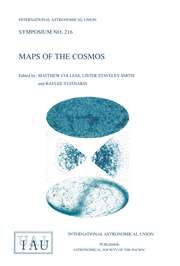Article contents
Simulation of general relativistic corrections in long term numerical integrations of planetary orbits
Published online by Cambridge University Press: 04 August 2017
Abstract
Long term numerical integrations of planetary orbits designed to study the stability of the Solar System over timescales comparable to its age have become very promising thanks to the availability of very powerful computers and to a substantial improvement in our methods of investigating the stability of hierarchical dynamical systems. The stability of such numerical integrations relies on the ability to control all possible sources of error. Among the errors caused by the inadequacy of the physical model are those due to the fact that Newton's theory of gravitation is used instead of general relativity. We show that the secular advance of perihelia predicted by general relativity can be simulated exactly by a 1/r2 perturbing potential with almost negligible additional cost in computer time.
- Type
- Motions of Natural Bodies in the Solar System
- Information
- Symposium - International Astronomical Union , Volume 114: Relativity in Celestial Mechanics and Astrometry , 1986 , pp. 105 - 111
- Copyright
- Copyright © Reidel 1986
References
- 1
- Cited by


